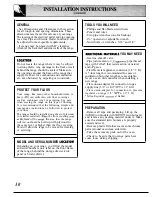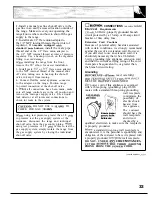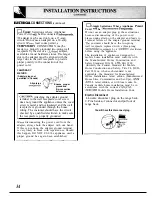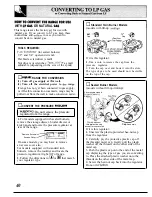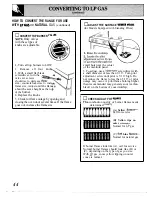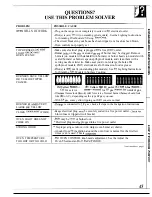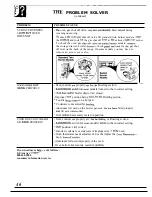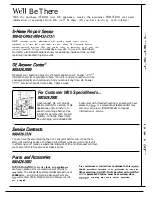
THE OVEN BURNER ORIFICES
Oven Burner
1.
Remove oven door, storage drawer or broiler
drawer, oven bottom and burner baffle (on some
models). The lower burner orifice spud is
located behind the storage drawer, broiler
drawer or kick panel. (On some models, a metal
shield must be removed to access the
2. To
convert to
gas,
use a 1/2” wrench to turn
the lower burner orifice
spud clockwise. Tighten the
spud only until it is snug.
To prevent damage, do
not
the spud.
To convert to
gas,
loosen the spud about 2 turns.
Broil Burner
(on some
models)
To convert to
gas,
use a 1/2” wrench to
turn the upper burner
spud clockwise.
Tighten spud only until it is snug with the base.
To prevent damage, do not
spud.
To convert to
gas,
loosen the spud
about 2 turns.
❑
CONVERT AIR ADJUSTMENT SHUTTER
For
gas,
loosen the
Phillips head screw and
the shutter to the
Screw
full open position. With
Air Shutter
baffle in place, flames
should have approximately
l-inch blue cones and
should not extend beyond
the edges of the burner baffle. After 30 seconds
of burner operation, check for flames lifting off
burner ports. If lifting is observed, gradually
reduce air shutter opening until flames are
stabilized.
For
gas,
the shutter should be open
or
about 3/4 of the way open.
❑
CHECK FOR LEAKS
When
all connections have been made, make sure
all range controls are in the off position and turn
on the main gas supply valve. Use a liquid leak
detector at all joints and connections to check for
leaks in the system.
DO NOT USE A
TO
CHECK FOR GAS
When using test pressures greater than 1/2 psig
to pressure test the gas supply system of the
residence, disconnect the range and individual
shut-off valve from the gas supply piping. When
using test pressures of 1/2 psig or less to test the
gas supply system, simply isolate the range from
the gas supply system by closing the individual
shut-off valve.
(continued next page)
43


